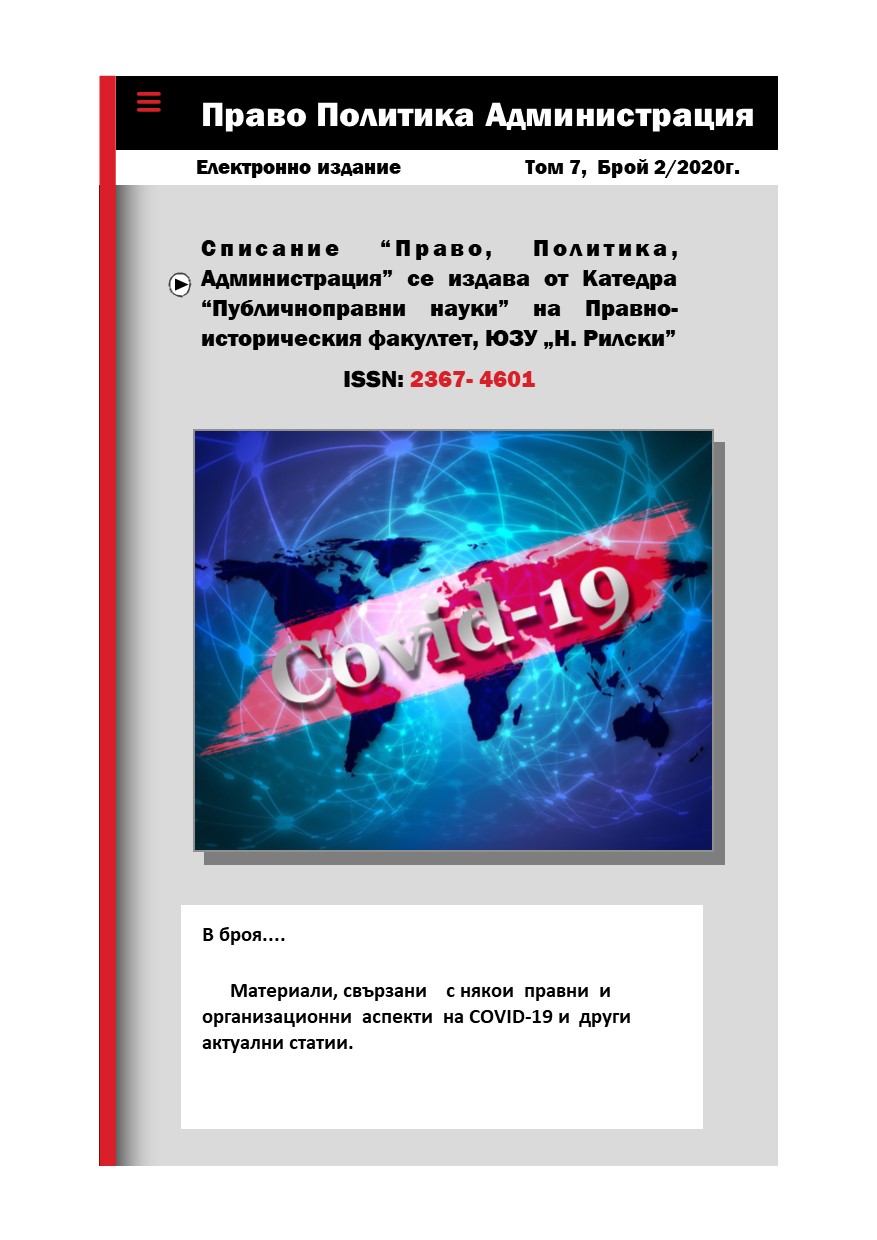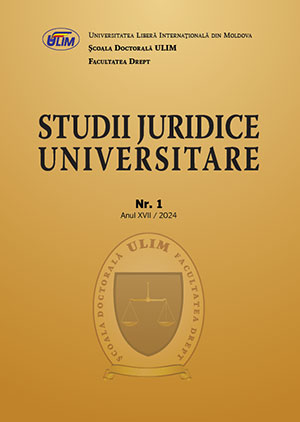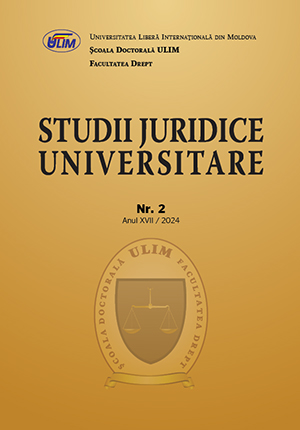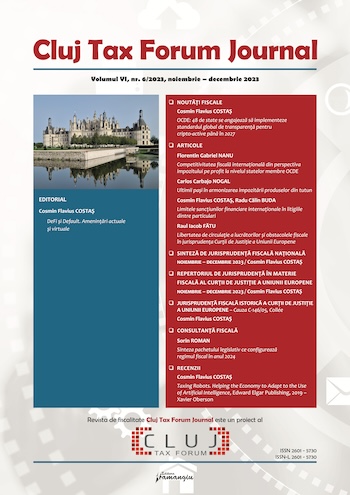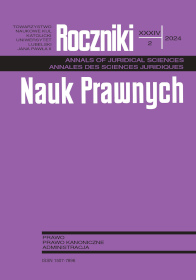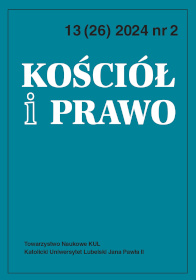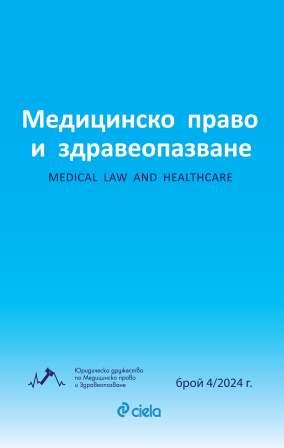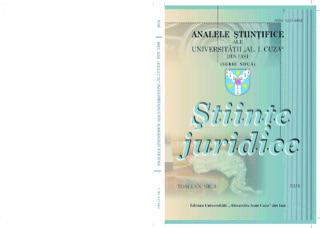Author(s): Cosmin Flavius Costaş / Language(s): Romanian
Issue: 6/2023
Hotărârea Curții din 23 noiembrie 2023, cauza C-532/22, având ca obiect o cerere de decizie preliminară formulată în temeiul art. 267 TFUE de C.A. Cluj (România), prin decizia din 3 iunie 2022, în procedura D.G.R.F.P. Cluj-Napoca, A.J.F.P. Cluj împotriva Westside Unicat SRL/
Hotărârea Curții din 16 noiembrie 2023, cauza C-391/22, având ca obiect o cerere de decizie preliminară formulată în temeiul art. 267 TFUE de Pécsi Törvényszék (Curtea din Pécs, Ungaria), prin decizia din 7 iunie 2022, în procedura Tüke Busz Közösségi Közlekedési Zrt. c. Nemzeti Adó-és Vámhivatal Fellebbviteli Igazgatósága/
Hotărârea Curții din 16 noiembrie 2023, cauza C-349/22, având ca obiect o cerere de decizie preliminară formulată în temeiul art. 267 TFUE de Tribunal Arbitral Tributário (Centro de Arbitragem Administrativa – CAAD) [Tribunalul Arbitral Fiscal (Centrul de Arbitraj Administrativ – CAAD, Portugalia)], prin decizia din 23 mai 2022, în procedura NM c. Autoridade Tributária e Aduaneira/
Hotărârea Curții din 21 decembrie 2023, cauza C-288/22, având ca obiect o cerere de decizie preliminară formulată în temeiul art. 267 TFUE de tribunal d’arrondissement de Luxembourg (Tribunalul Districtual din Luxemburg, Luxemburg), prin decizia din 26 aprilie 2022, în procedura TP c. Administration de l’enregistrement, des domaines et de la TVA/
Hotărârea Curții din 21 decembrie 2023, cauza C-96/22, având ca obiect o cerere de decizie preliminară formulată în temeiul art. 267 TFUE de Supremo Tribunal Administrativo (Curtea Administrativă Supremă, Portugalia), prin decizia din 12 ianuarie 2022, în procedura CDIL – Companhia de Distribuição Integral Logística Portugal S.A. c. Autoridade Tributária e Aduaneira/
Ordonanța Curții din 1 decembrie 2023, cauza C-574/22, având ca obiect o cerere de decizie preliminară formulată în temeiul art. 267 TFUE de Sofiyski gradski sad (Tribunalul orașului Sofia, Bulgaria), prin decizia din 12 iulie 2022, în procedura penală contra CI, VF, DY, cu participarea: Sofiyska gradska prokuratura/
More...
